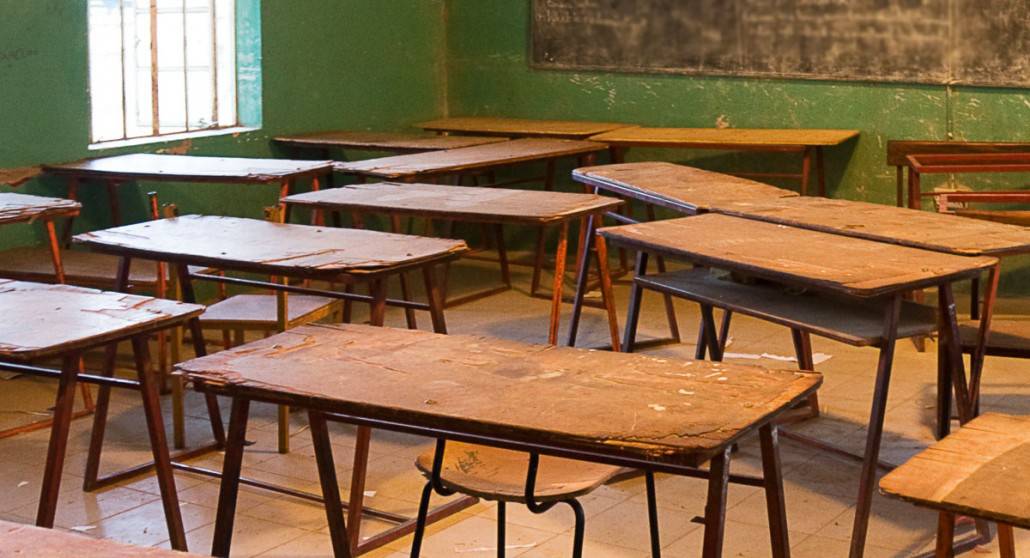By Thato Mahlangu
The Competition Commission is working hard to clamp down on school suppliers who are suspected of dominating in the supply and distribution of school uniform.
Some school suppliers may be colluding with school management, including school governing bodies (SGBs), in inflating prices on school uniforms.
Our 2018 Analysis of Corruption Trends (ACT) report highlighted the persistent involvement of school principals, teachers, and SGBs in corrupt practices, including price-fixing.
The commission said in a statement, published on its website early this year, that it wants school uniforms to be reasonably priced and for the competition to be fair. It also said that producers and distributors of school uniforms should adhere to the Competition Act, which prohibits anti-competitive behaviour.
“(We are) urging schools to adhere to the school uniform guidelines aimed at curbing anti-competitive behaviour at schools. This is aimed at making sure that schools are compliant with the Competition Act but, most importantly, school uniform becomes reasonable and affordable,” said the commission.
The investigation into anti-competitive behaviour at schools was concluded early last year, according to the Commission.
“The probe established that a number of schools still had exclusive contracts with one supplier,” explained the commission’s spokesperson Sipho Ngwema, adding that these contracts did not go through a competitive and transparent bidding process.
“Given the number of schools and other considerations, it was felt that schools must focus on the primary function, which is to educate,” he said.
The commission said it was reluctant to drag these schools through the protracted litigation process and distract them from their main function.
According to an article published by the Daily Maverick, in February this year, the Commission reached an agreement with several schools, which were found guilty of anti-competitive behaviour, which could bring relief to some parents paying exorbitant prices for their children’s school uniforms.
The agreement, which the Daily Maverick reported is said to have taken place in February, would see the number of school uniform suppliers increase, breaking what appear to be cartel-like operations in the sector.
This would help parents to get more options for buying uniforms from different school uniform distributors, including affordable retail stores.
Generic uniforms would make it easier for parents
The Daily Maverick quoted Juané van der Merwe, legal officer for the Federation of Governing Bodies of South African Schools (Fedsas) as saying there was no reason why parents should have difficulty in finding uniforms if they were more generic.
“The more generic it is, the more available it is for parents to shop around. You can go to your PEP stores or your Woolworths. More exclusive school uniforms mean that school governing bodies have to complete agreements with certain suppliers to make those exclusive school uniforms,” she said.
The suppliers would have to adhere to these guidelines:
- School uniform should be as generic as possible such that it is obtainable from as many suppliers possible.
- Exclusivity should be limited to items that the schools regard as necessary to obtain from pre-selected suppliers e.g. badges.
- Schools should follow a competitive bidding process when appointing suppliers.
- Schools should appoint more than one supplier in order to give parents more options.
- The concluded agreements should be of limited duration.
A memorandum of understanding was signed in 2018 by the commission and Fedsas, which, according to the statement, is aimed at educating and encouraging schools to comply with the guidelines.
“The Commission (also) engaged private schools to comply with the guidelines. The private schools response and cooperation was phenomenal. Thus, we have jointly approached the Competition Tribunal with the product of our interaction,” the commission said.
Some of the allegations suggested that heads of school were also involved in the corrupt practices, which National Governing Body Foundation CEO Tim Gordon had previously warned about. According to the Daily News, Gordon had said that schools should not be involved in the business, but should be teaching children.
“We, as the governing body, and parents should ensure that shops provide quality at reasonable prices. Obviously, in any set-up you find chancers,” he said.
Gordon said it is good that the allegations are being investigated.
“As long as the commission will take into consideration the different circumstances of the different communities, and hopefully this alleged collusion will not affect the wearing of uniforms in schools.”
CW works to keep schools corruption-free
Apart from school uniform corruption, Corruption Watch has been working hard in blowing the whistle on corrupt school principals, teachers and SGB members across the country. The organisation also conducts educational and awareness-raising outreach activities.
The ACT report also discovered that the most frequent types of corruption reported within schools include the embezzlement of funds, mismanagement of funds, employment irregularities and irregularities in procurement.
There have been over 26 000 reports from members of the public since our launch in 2012, alleging that there is corruption in our schools, which impacts the lives of millions of children and parents.
The reports don’t, however, suggest that children and parents are paralysed by the corruption that they encounter in their schools.
Our work, which includes (but is not limited to) awareness campaigns, debates, and workshops (which often assists in the process of the election of the SGB) suggests that learners and parents are actively involved in the promotion of ethics in schools, which would eliminate corruption.

